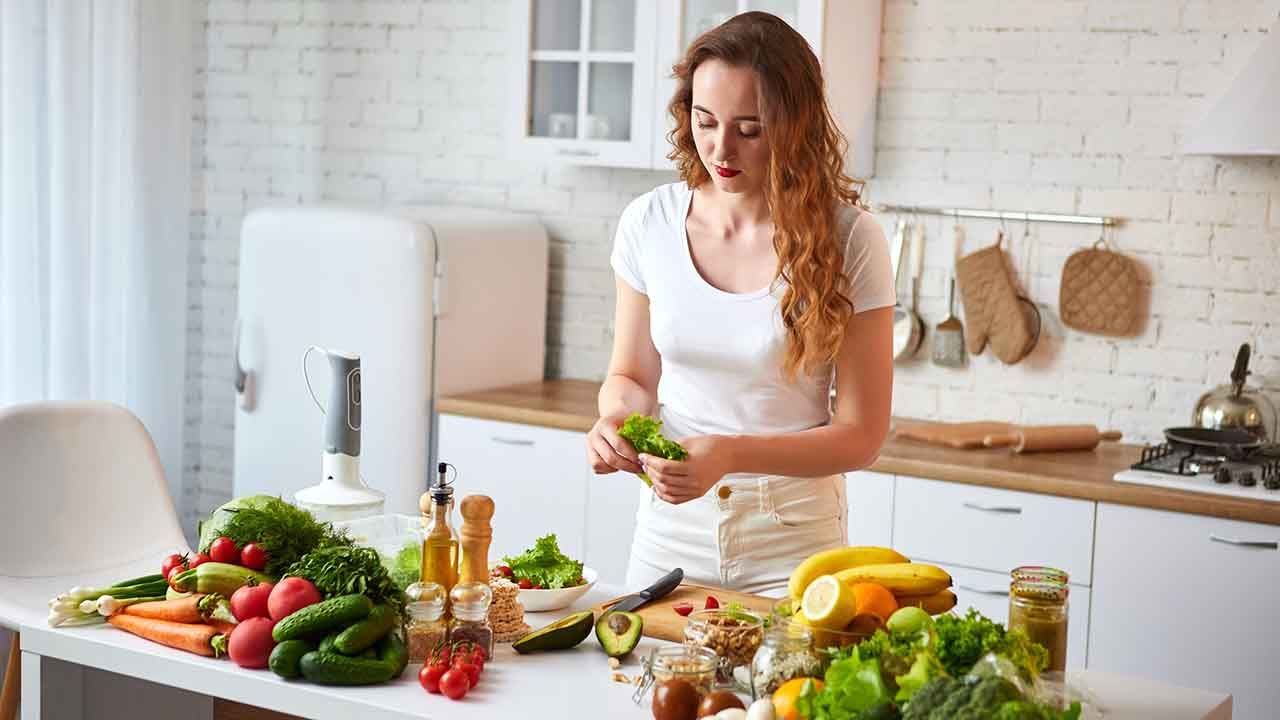Getting Kids Involved In The Kitchen

Want to get your children into the kitchen more but not sure where to start? Having them help you out with food preparation is not only paving the way for a valuable life skill on their part, further down the track they will be able to take on more complex activities reducing your own food prep workload, plus it will help make cooking a social family experience every day.
Here are some tips to help you get started:
Preschoolers
Be prepared for it to get messy and to have a lot of patience, but preschoolers get such a kick out of helping in the kitchen! Some tasks you give them - especially very young children - will be more token activities rather than actually being helpful and you may need to redo or finish the job yourself, but remember this is the starting point of cooking skills for them. Every time they help you out in the kitchen it's an opportunity for them to practice.
They can help knead dough for cookies or bread, roll dough out with a rolling pin, sprinkle/place ingredients onto things such as pizza, use cookie cutters, wash or scrub fruit and veges, assemble salads, mix with spoons or whisks, pour measured cups or spoonfuls of ingredients, shake in herbs or spices, and they will absolutely love taste testing.
It's not just about teaching them how to cook! They'll be learning fine motor skills which helps them gain more confidence and control over how they move their body, mathematics through measurement and counting, how to follow instructions if you are talking them through the recipes, and what healthy homemade cooking really looks like.
Primary school age
At this age, there's an opportunity for them every school day to get into the kitchen and help prep breakfast as well as their lunchboxes. Toast, porridge, cereal, assembling and cutting sandwiches, re-packing leftovers, cutting or peeling some types of fruit, rolling wraps or sushi...
If your children turn their nose up at their lunches, try to get them involved. Ask them what sorts of things they like and get them to help assemble the kind of lunch they want to eat (within reason! You still need to guide them towards healthier choices so if they pick something that's not as healthy as you would like, ask them how you could make a healthier alternative and give them examples to 'convert' it. Try to avoid talk about things being unhealthy, having too much fat or too many calories). Once they feel they have some control over their lunch, they may show more interest in it.
If there's too much of a mad rush in the morning, consider getting them to help with some of the tasks before they go to bed the night before - the same as you might do if you were packing a lunch to go to work. Helping out with baking or meal prep in the weekends for lunchbox fillers can also take some of the pressure off the weekday rush.
In the evening there are more opportunities to have them help out, and they will be able to take on the tasks we previously mentioned preschoolers could help with, but do them more independently.
As they learn to read, you could get them to start with very simple recipes aimed towards children so they begin to have more of an understanding how recipes work (plus work on their literacy at the same time!). They may even like to research some recipes they would like to attempt with you, so you can learn to make new things together.
Secondary school age
Now that they're older and more capable, this is a huge opportunity to help them learn and begin to master food preparation and cooking skills that they will carry through and develop for the rest of their lives. Once they finish up at secondary school, they may be off into the world! Flatting, university, work, overseas experiences...
The ability to create your own meals is an incredibly valuable part of healthy eating; what a gift you will be giving them to help them learn this at home - even if they don't quite realise it yet! Start getting them more involved in the grocery shopping process if you haven't already; ask them to think about what ingredients you will need for certain recipes, what food products you usually buy in a typical weekly shop, where the ingredients originate from.
Also how to plan a meal - especially on a budget. Give them an 'assignment' and help them through it; set them a budget where they need to figure out how to feed the family a nourishing, healthy meal within that price limit. Put some conditions on it such as 'there must be 'x' servings of vegetables, 'x' servings of protein and 'x' servings of carbohydrates per person'. Then help them create it.
Let them take the reins on some meals so they can get a sense of the full process. They don't need to be complicated recipes, and they can still come to you for help if they need it. Salads, pancakes, hamburgers, pizza, stir fries, healthy smoothies, spaghetti bolognese. If they haven't already begun to use the oven and stovetop themselves, early teens is a good time to introduce teaching them how to cook with high temperatures safely.
Teach them how to upgrade simple common meals. For example, even though quick noodles aren't particularly healthy they are a popular food option for many in this age group. You can bump up the nutrition value by adding some frozen veges, or putting in some shredded roast chicken, or adding an egg.
These are just some ideas to get children involved in the kitchen, what else could you do? Get creative and let them explore! Remember there will be mistakes, but this is how they will learn.
Image / DepositPhotos









